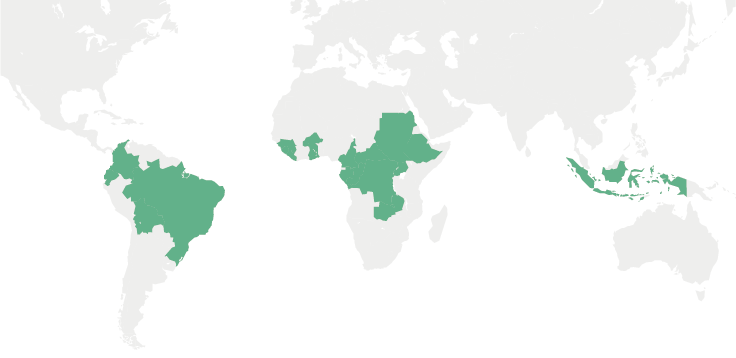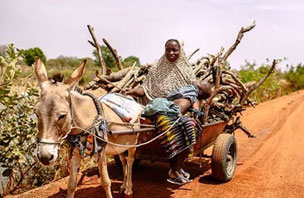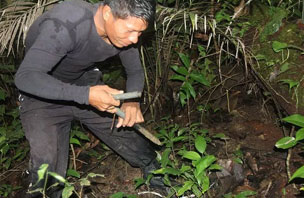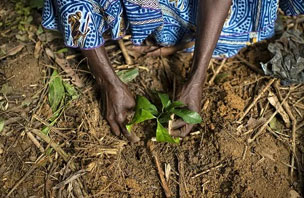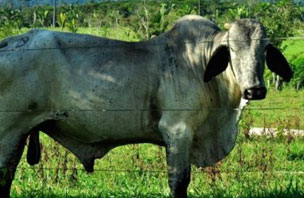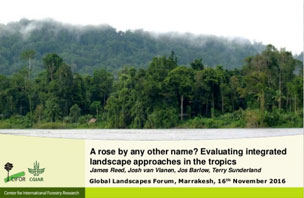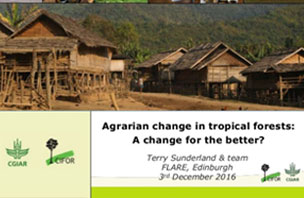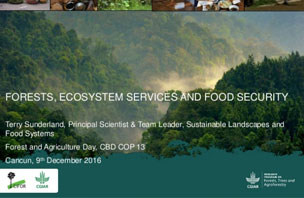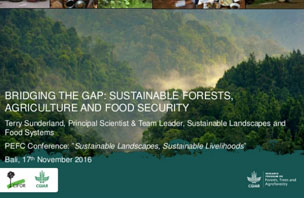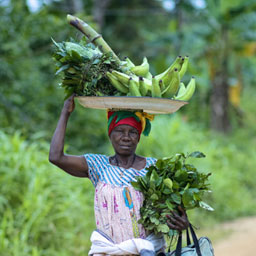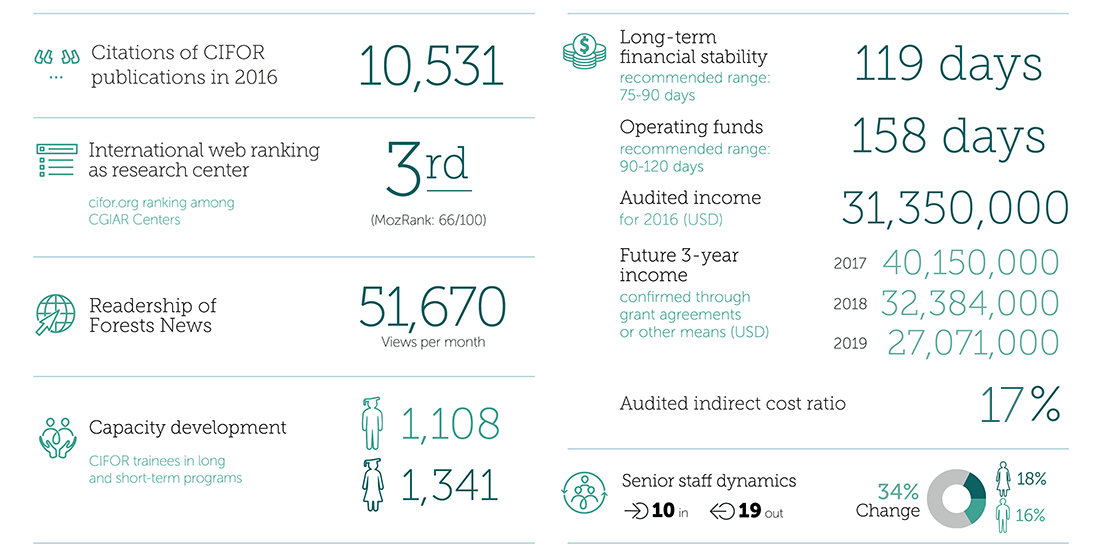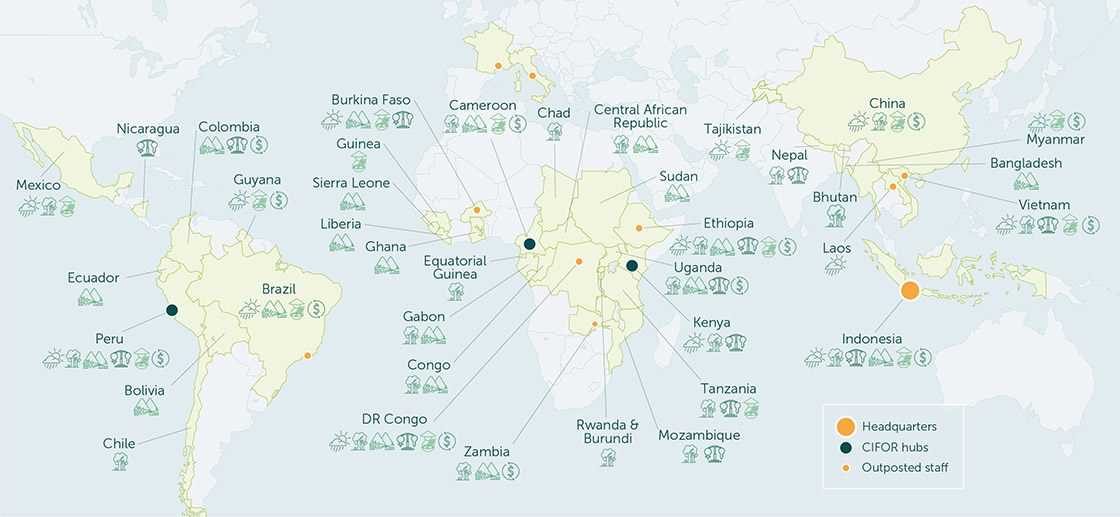
Highlights
2016 Achievements
- The ‘Ten principles for a landscape approach’ have been taken up by the USAID project LESTARI as an intervention framework for six landscapes in Indonesia, by Conservation International in the design of their Sustainable Landscapes Partnership project, and by the World Resources Institute’s African Forest Landscape Restoration Initiative (AFR100).
The 10 principles of the landscape approach… represent the consensus opinion of a significant number of major actors on how agricultural production and environmental conservation can best be integrated at a landscape scale.
AFR100 website
- Harvesting wild honey is both a sacred business and a lucrative one for the Mutis-Timau people living in the Mount Mutis Nature Reserve in West Timor, Indonesia. Their customary laws, combined with economic incentive, are having a strong impact on forest protection and social harmony.
- CIFOR’s work on the role of bushmeat in food security and nutrition contributed to a decision adopted by the Conference of the Parties to the Convention on Biological Diversity requesting member countries to work with indigenous peoples and local communities on a road map to sustainable use of wildlife.
- Like elephants and pandas, pangolins – also known as scaly anteaters – are evolutionarily distinct and globally endangered, and are hunted for bushmeat and medicinal uses. CIFOR is a key partner in the OFFTAKE project, which published an analysis of the hunting and sale of four species of pangolin across Sub- Saharan Africa that was presented at the Convention on International Trade in Endangered Species of Wild Fauna and Flora (CITES) CoP17, and cited in the CITES decision to ban the global trade in African pangolin species – the strictest protection possible.
- The African cherry tree (Prunus africana), prized for its ability to reduce swelling of the prostate, is threatened by a growing international trade in wild-sourced bark from the Congo Basin. CIFOR presented evidence supporting the push for an urgent change in regulations set by CITES, noting that a shift from wild harvesting to on-farm cultivation would also benefit thousands of small-scale farmers, including local women. CIFOR’s research and engagement contributed to a decision at the CITES conference 2016 (CoP17) to further investigate the trade.
- In Indonesia, CIFOR helped build capacity among four local partners to develop scientifically-justified policy for integrated watershed management, and held a workshop for Indonesian journalists on operationalizing the landscape approach to balance conservation and livelihoods.
Expert analysis
- Local context is key to understanding how important forest foods are to smallholder nutrition. Using data from the Poverty and Environment Network across 24 tropical countries, researchers found some forest communities get over 100% of their dietary needs from wild foods, while others rely on them to a much smaller extent.
- In Indonesia, researchers found that children living in tree-dominated landscapes had healthier diets than those living in the same regions without trees.
Global outreach
CIFOR’s landscapes and food team engaged with partners at 2016 events across the world to discuss bushmeat, nutrition and landscape approaches.
- Conference of the Parties to the Convention on Biological Diversity (CBD COP13), Cancun, Mexico
- Global Landscapes Forum – Climate Action for Sustainable Development, Marrakesh, Morocco
- FLARE Annual Meeting 2016, Edinburgh, UK
Photo by N. Sujana/CIFOR.

